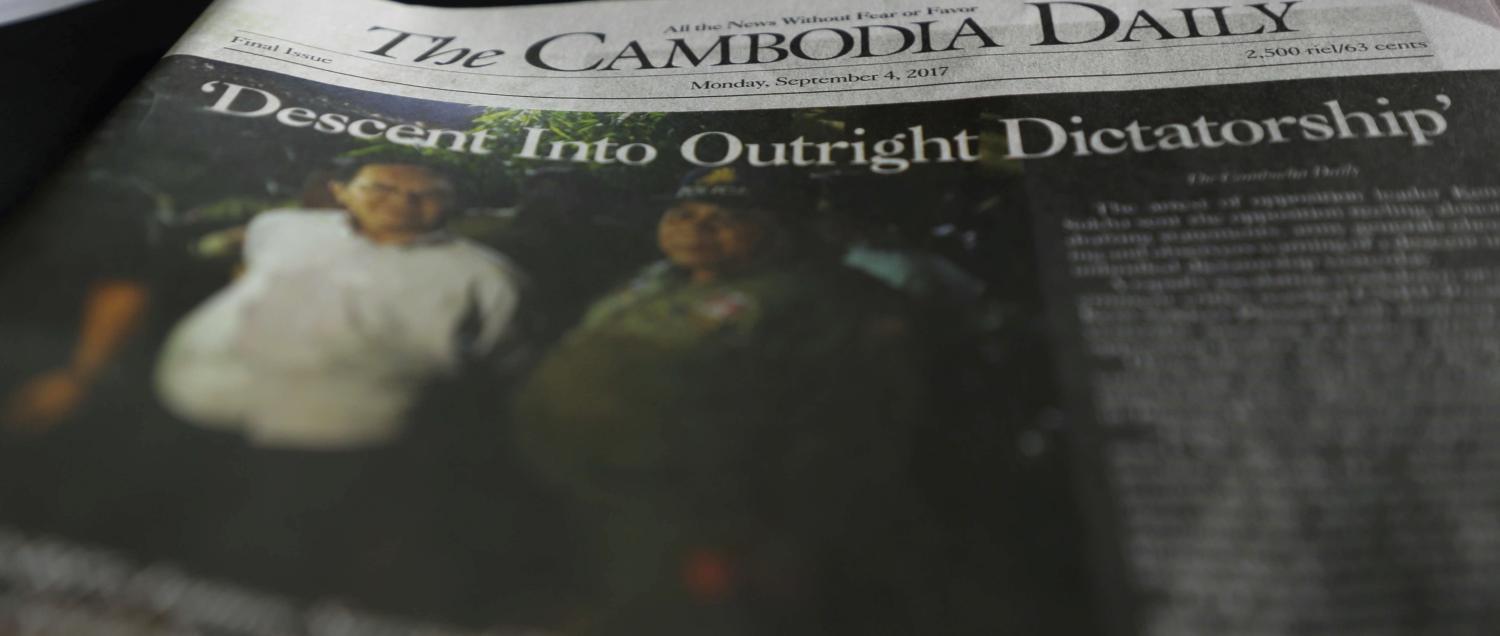This morning I spoke with Mu Sochua, the deputy leader of the opposition Cambodia National Rescue Party (CNRP). On 2 September, the leader of her party Kem Sokha was arrested at his home in the middle of the night and later charged with treason. Mu Sochua fled Cambodia in early October after learning she would be next.
After a contrived and deeply flawed process, the country's supreme court dissolved the CNRP as a political party on 16 November, and awarded its seats in parliament other parties nominally in opposition but allied, in practice, with the government.
The crackdown on the CNRP has run alongside a crackdown on independent media in the country, with the government shutting down the Cambodia Daily and arresting Cambodian journalists who had worked for Radio Free Asia.
I asked Mu Sochua, in our interview below, why she believes the crackdown is taking place now, what drives Hun Sen to want to remain in power, and about China's role in keeping him there. Asked what governments such as Australia can do to encourage Cambodia to return to democracy, she urged Australia to stop engaging Cambodia's repressive security services:
Australia has been on the side of the democratic forces in Cambodia, for example investing in the local organisations, investing in the reform of the police, and so on. However, there are certain institutions, like the military, like the police, the ministry of interior – those institutions remain in the hands, in the control of Mr Hun Sen directly. And Australia has been trying to reform those institutions, reform Hun Sen. It's not going to work. It's been 25 years – and more money into these institutions means full support for Mr Hun Sen to stay in power. That is not acceptable.
You can listen to the full interview below:

